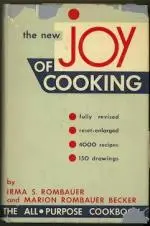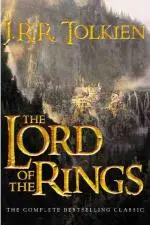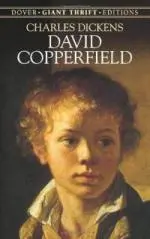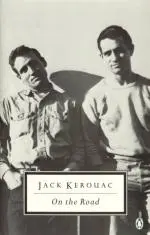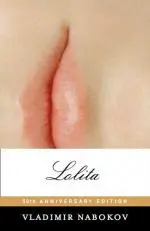Too many people get so caught up in what the art critic Robert Hughes called “the shock of the new” that they miss one of my favorite aspects of reading: the shock of the old. Rereading a book I’ve loved before is like refreshing a longstanding friendship. The same pleasure returns, but something unexpected pops out – a character whose wisdom suddenly makes sense, or a once reasonable action that turns unexpectedly foolish. We change as we age, or at least we like to think we do; so do our perspectives on what we read. The following selections are a few of my golden oldies, perennial favorites that entertain and enlighten me no matter how often I’ve read them. In fact, the more often I read them, the better they get.
![]() The Joy of Cooking
The Joy of Cooking
The names Irma S. Rombauer and Marion Rombauer Becker have never appeared on any short lists for the Nobel Prize in Literature, and they’re rarely if ever thanked by writers as stylistic influences. But their book, The Joy of Cooking, is one of the most entertaining and authentic nonfiction books ever written. I’m not talking about the various updates, especially the well-meaning but disappointing 1997 edition. I’m referring instead to the one I grew up with – the 1953, based on the original 1931 classic. My mother bought it around the time she met my dad. He adored great food, but she was indifferent. So she turned to The Joy of Cooking, became his wife, and eventually reigned as the best cook in the family.
It took a bit of practice. She once wanted to put together a decent beef stew and made the mistake of calling my aunt, her older sister, for advice. Alice would have none of it. “Ya got a cookbook?” she asked with a certain edge. My mother, Betty, sensed she had waded too far into the waves and warily answered yes, citing The Joy of Cooking. “Can ya read?” was my aunt’s triumphant reply. (They were both Bryn Mawr graduates.) Alice won that round, but by the time I was born, it was Betty who was producing the grand specialties, almost all of which were drawn from The Joy of Cooking, while Alice remained stuck on Salisbury Steaks and frozen Brussels sprouts.
Braised oxtails? We had ‘em often. Sweetbreads? I’d come home from school to find my mother in our modern linear kitchen following the Rombauers’ instructions on how to remove the membranes before sautéing them with white wine and a bit of parsley tossed in at the end. (Sweetbreads is the euphemism for thymus glands.) We frequently had spicy curries, always served with saffron rice and five or six little dishes of add-ons: mandarin orange segments, peanuts, whatever she had on hand. I was a gourmet by the age of five. And this was all occurring in a backward little piss-ant town 20 miles north of Pittsburgh, a town where nobody would touch lamb, let alone sweetbreads.
The breadth of the classic Joy of Cooking is breathtaking. Wanna know how to dress a rabbit? There’s a hilarious illustration – part Beatrix Potter, part Saint Bartholomew. And get this: “There are proverbially many was to skin a squirrel, but some hunters claim the one below is the cleanest and the quickest. It needs a sharp knife.” (That’s one hell of an understatement.) The three cartoon illustrations are amusingly matter-of-fact: 1) a hand reaches toward a splayed squirrel; 2) a foot pins down the bushy tail while the hand reaches down from the top; 3) the foot still stomps on the tail while two hands yank the fur off the squirrel’s front paws.
Go ahead – laugh. Or call PETA. But if you want to compose the American classic Brunswick Stew, which features squirrel, you’ll need to know how to do precisely what the book so clearly explains. Today everybody cheats by using chicken.
“Cut off the head of a snapping or soft shelled turtle,” The Joy of Cooking advises after casually informing the reader that the turtle must be alive at the time. “Hang it from a nail, neck down, until the blood no longer drips…. Discard the intestines.” I’ll take their word for it. Now exactly where does one buy a large live turtle for the Rombauers’ delicious-looking terrapin stew? On that crucial question The Joy of Cooking is tragically silent.
![]() The Lord of the Rings
The Lord of the Rings
Some time in the late 1960s, when I was about ten years old and already hanging around bookstores, I began to see four books all over the place: The Hobbit and The Lord of the Rings trilogy. They had terrific, eye-popping covers, especially for paperbacks, and I, banished in shame from the backyard where the other boys were always playing some sort of dumbass sport, had a lot of time on my hands. So I bought all four of them.
I read The Hobbit over a long weekend. I vividly remember doing nothing but reading, eating quickly, and falling asleep Friday and Saturday nights with the book in my hands. Okay, I wasn’t the world’s closest, most careful reader, but I did pretty well and didn’t skip a single page. How could I? I might miss something. On Friday morning, I was just an average kid from a crap town in western Pennsylvania. By late Sunday night I was a disciple of Gandalf. My soul was open at last.
Entranced and transported to a world of hobbits and elves and humans and dwarves, I believed every word I read, though not to the extent of ever thinking I might actually come across an elf in the woods behind our house. As a two-year-old I’d heard underground trains click-clack deep in the earth beneath my room (the coal mine’s entrance was about 300 feet down the wooded hillside) and fully believed that I was the lucky boy, the only boy, who knew for a fact that the Seven Dwarves were real. But they closed the mine soon thereafter, and by the time I read The Hobbit I’d had the Seven Dwarves fantasy knocked out of me. But J. R. R. Tolkien’s tale of Bilbo Baggins and The One Ring and (I shudder at the names even now) Sauron and Mordor caught my imagination like no other book ever had, with the possible exception of The Bell Jar, which I read way too soon.
It took a while longer to read the trilogy. Aside from its length, part of the reason was that I wanted the tale to last forever, simultaneously grooving on the creeps the orcs gave me and loving/hating Gollum, whose lines I tended to recite out loud, and on the other hand feeling driven to learn how it all ended as soon as possible. The Two Towers was a bit of a slog, but I raced through the other two.
I wept through the final pages of The Return of the King: Frodo knew too much to stay home, a future that was beginning to dawn on me as well. When I reread them all in 2001, before seeing the first of Peter Jackson’s brilliant film adaptations, I cried my eyes out well before the end. I knew what was coming. I’d left my own home when I went to college, and by 2001 my father was dying. Like everyone sooner or later, I’d touched the One Ring, and I’d never again be the boy I’d once been.
![]() David Copperfield
David Copperfield
The full title alone makes me want to reread it every few years, so I do: The Personal History, Adventures, Experience and Observation of David Copperfield the Younger of Blunderstone Rookery (Which He Never Meant to Publish on Any Account).
“Uriah Heap,” my mother firmly stated shortly before her death in 2009, when she saw the book I’d brought along on one of my monthly visits to western Pennsylvania. “Dickens always compares him to a snake.”
My jaw dropped, as it often tended to do when she’d come out with a memory that had survived for decades while more recent events – like my last trip to visit her – were lost.
She was, of course, correct. Uriah Heap is one of the most unpleasant characters Charles Dickens ever created, which is one of the reasons I’d rather reread David Copperfield for the third or fourth time than try to get through Our Mutual Friend or, God help me, start in on Trollope. I have next to nothing in common with David Copperfield. I knew my father; David’s dies before he’s born. I never had to endure industrial work (except for the time I worked at the local slag dump, a subject best forgotten), let alone the hell of a 19th-century English factory; David is dispatched to one by his own onerous stepfather. And yet I slip into David Copperfield’s abundantly detailed character within the first few sentences, feel every indignity visited upon him, fall in love with Steerforth every time against my better judgment, and bear both the comedy and the tragedy of poor Mr. Micawber and his endearingly loyal family. Is there any finer, more loving surrogate mother in literature than Peggotty? Is anyone more worthy of idol worship that leads to a shattering end than Steerforth? I once accepted a visiting professorship with an email consisting of three words: “Barkis is willing.”
Unlike Oliver Twist, in which Dickens puts little Oliver into such miserable circumstances that he – Dickens – can’t take it any more and spirits Oliver more or less out of his own story and into safekeeping for most of the rest of the novel, he scarcely holds back with David. Crushing disappointment and cruel injustice envelope David at nearly every point. And yet he survives and even thrives at the end. It’s a great read but an even greater reread. You don’t have to race through it to find out what happens in the last chapter the way you do the first time, so you can savor every misfortune and horrible wrong visited upon the protagonist, safe in the knowledge that he – and you, his real-life double – will come to as good an end as is possible in this harsh, luck-driven world.
![]() On the Road
On the Road
Jack Kerouac was cool, but I was in lusty thrall with Neal Cassidy. Kerouac calls them “Sal” and “Dean,” but I’d read a little about Kerouac before I picked up the novel in college and knew all about the ruse. Forget the fact that I was attending precious little Haverford College, with its high Quaker ideals masking a stonehearted and soul-free reality. Ignore my father being a successful lawyer, my mother having her own money, and I freely planning to do with my life whatever I pleased. I was a drug-driven desperado when I picked up On the Road and roared through it as though I was reading my autobiography – the one I perversely wished I had, not the one that had anything to do with me.
Driving. Talking and driving. The open road. Never staying in one place. I suppose I periodically wanted to be Kerouac, the writer of this frantic masterpiece, but I hopelessly wished I was Cassidy, the gal-fucking and selfish asshole who was a hell of a lot of fun to drive across the country with. “Kicks” – that’s what I wanted and wasn’t getting, except vicariously through On the Road.
The Kerouac mystique was so powerful in the 1970s that merely being seen carrying the book elevated me in the eyes of my fellow students. I think I read and reread the book several times while stoned during those college years, but – no shock here – I can’t remember.
![]() Lolita
Lolita
It’s telling that my favorite American films were directed by an émigré, Billy Wilder, and my favorite American novel was written by another émigré, Vladimir Nabokov. Precisely what it tells, however, I can’t say.
But it’s worth noting that both Wilder and Nabokov took on American English not as their first language, and each writer was so fascinated and amused by our cadences and idioms that he became a better writer than almost anyone who was actually born here.
Nabokov’s Lolita is brazen, obscene, disgusting, tragic, and hilarious; that combination is rare. The first half is the funny part. The tale’s narrator is also its protagonist, and Nabokov sticks him with the memorably idiotic name Humbert Humbert. What the pervert Humbert does in the course of Lolita is completely immoral, deeply disturbing, and supremely comical: he fucks a twelve-year-old girl after marrying the girl’s mother solely so he can be closer to the girl. “That’s child abuse!” some of you are thinking, if not shouting. Yes, it is. And parts of it are downright hilarious. But it stops being funny in the middle of the book, when Nabokov gives Humbert this bone-chilling line at the end of Part One: “You see, she had absolutely nowhere else to go.”
Part Two is just terribly, terribly sad.
If you haven’t read the book yet, don’t be intimidated by the heavyweight annotated edition, with notes by Alfred Appel, Jr. Sure, Appel goes overboard with his references, so much so that you’ll began to suspect that Nabokov himself created the annotator just for laughs. But this book is as erudite as it is daring, and it’s worth checking out at least some of the far-flung allusions that Nabokov slips in for the alert reader’s pleasure as well as his own.
There you have it, five of my favorite rereads. What are some of yours?
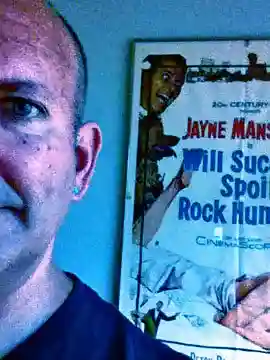
About the author
Ed Sikov is the author of 7 books about films and filmmakers, including On Sunset Boulevard:; The Life and Times of Billy Wilder; Mr. Strangelove: A Biography of Peter Sellers; and Dark Victory: The Life of Bette Davis.
